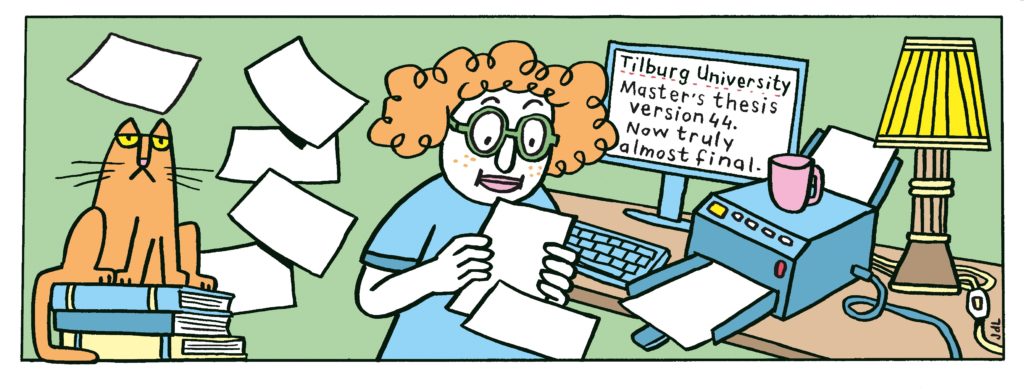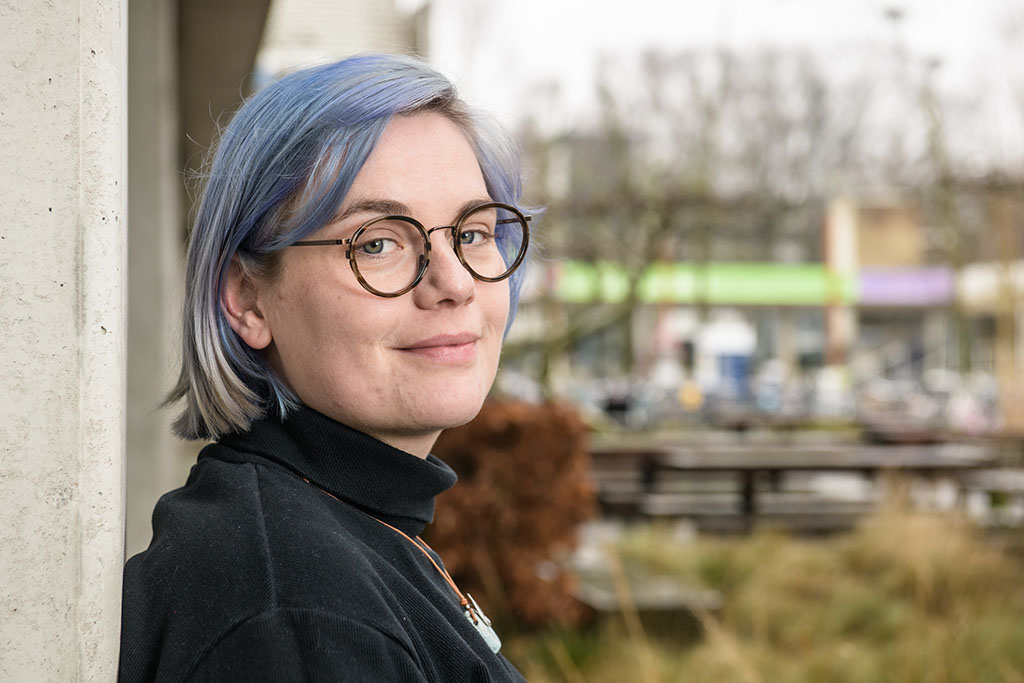Witchcraft in children’s literature: ‘Women were blamed for all things bad’
‘Women are the ideal scapegoat. That’s how capitalism could flourish,’ Will Kranendonk explains in her master’s thesis on witchcraft in children’s books.

Where did the inspiration for your thesis come from?
‘Witchcraft is a popular theme in pop culture. Millions of posts are shared via TikTok under #WitchTok. There are also many videos on YouTube about witchcraft. The subject appeals to me immensely. Since childhood, I have read a lot about witchcraft.
‘Leading up to my Master’s thesis, I happened to have just read a book by Marxist feminist Silvia Federici (in Dutch). In Caliban and the Witch: Women, the Body and Primitive Accumulation, Federici makes a connection between the persecution of witches in medieval Europe and the transition from a feudal to a capitalist society.
Federici’s book was a great prompt for me to investigate how witch persecutions in Europe are written about in children’s literature. In addition, I wanted to know how Federici’s theories relate to these stories.’
What is your thesis about?
‘In the transition from the feudal system to the capitalist system, women—simply put—were only allowed to give birth to babies, raise children, and take care of the household. This made women subordinate to men: paid work was performed by men and unpaid work by women.
‘Women who rebelled against this social exclusion were called ‘witches’ and persecuted for witchcraft. They were the ideal scapegoat and were blamed for all the bad things that happened.
‘To prevent other people from rebelling, these ‘witches’ were set as examples. In this way, everyone conformed to the capitalist system, allowing it to flourish.’
What came out of your research?
‘I studied a number of children’s and youth books that deal with witchcraft in Europe. In these books, you can see Federici’s theories reflected: the female characters resist patriarchy. They want to make independent choices about their bodies and futures. They also do not want to be guided by the ideology of the male rulers.’

Why is this important?
‘Literature is important for several reasons. For example, it provides a new perspective on social problems. It can also make the reader sympathize with the character in a story. That is enormously valuable.
‘In one of the books I researched, there is a character with autism. She lives in a village where witches used to be persecuted. In a meaningful passage, she says, ‘I am like the witches because I am different, and I am also excluded.’
‘Readers who recognize themselves in this character’s words can identify with the witches and their ideology through the main character. In doing so, they learn that it is good to—like the witches—make your own choices about who you want to be and how you relate to your own body.
‘Children’s literature also has a formative and didactic effect. Adults write books that are read by children. As a result, an adult writer’s ideas, norms, and values are transmitted to children through literature.’
Every year on March 8, International Women’s Day is celebrated. What does this day mean to you?
‘Individuals in a society experience privilege or oppression based on a number of factors. Gender, caste, ethnicity, social class, sexuality, religion, disability, and weight are examples. This also happens in the Netherlands.
‘The wage gap (between men and women, ed.) is a good example of gender discrimination. I, therefore, think it is good that there is an International Women’s Day and attention is drawn to this. Although I also find it extremely sad that such a day has to exist, and it is not self-evident that everyone has equal rights.’
Master’s thesis
A literature review, experimenting in the lab or getting into the swing of things with SPSS? Tilburg University students write the most diverse theses. In the Master’s thesis section, Univers highlights one every month.
Author: Will Kranendonk
Title: The forced mothers of capitalism: The ideological and symbolic roles of the female body in contemporary children’s literature about witchcraft in medieval Europe
Grade: 8.5
Supervisor: Sara Van den Bossche
Translated by Language Center, Riet Bettonviel






